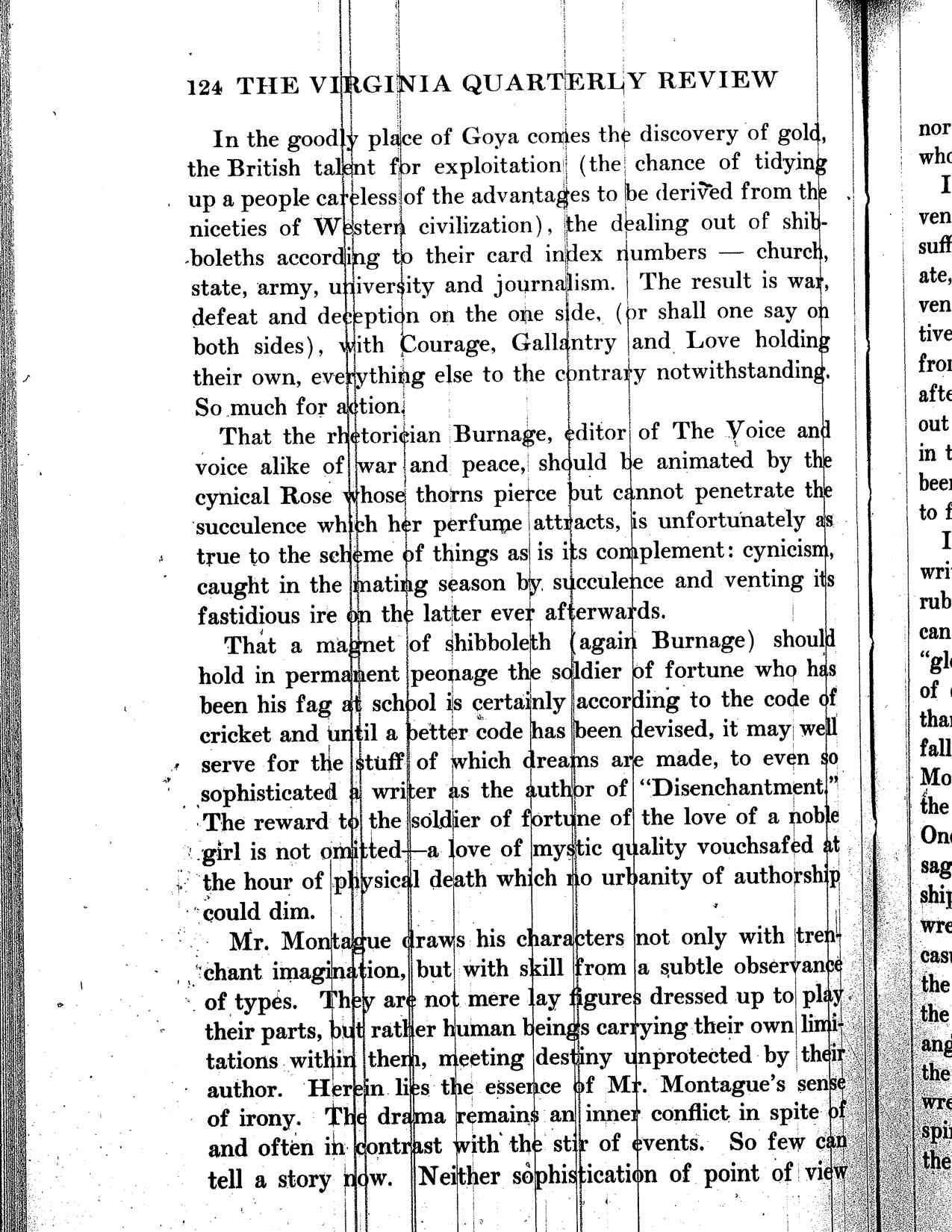
[new page]
In the goodly place of Goya comes the discovery of gold,
the British talent for exploitation (the chance of tidying
up a people careless of the advantages to be derived from the
niceties of Western civilization), the dealing out of shibboleths
according to their card index numbers—church,
state, army, university and journalism. The result is war,
defeat and deception on one side, (or shall one say on
both sides), with Courage, Gallantry and Love holding
their own, everything else to the contrary notwithstanding.
So much for action.
That the rhetorician Burnage, editor of The Voice and
voice alike of war and peace, should be animated by the
cynical Rose whose thorns pierce but cannot penetrate the
succulence which her perfume attracts, is unfortunately as
true to the scheme of things as is its complement: cynicism,
caught in the mating season by succulence and venting its
fastidious ire on the latter ever afterwards.
That a magnet of shibboleth (again Burnage) should
hold in permanent peonage the soldier of fortune who has
been his fag at school is certainly according to the code of
cricket and until a better code has been devised, it may well
serve for the stuff of which dreams are made, to even so
sophisticated a writer as the author of “Disenchantment.”
The reward to the soldier of fortune of the love of a noble
girl is not omitted—a love of mystic quality vouchsafed at
the hour of physical death which no urbanity of authorship
could dim.
Mr. Montague draws his characters not only with trenchant
imagination, but with skill from a subtle observance
of types. They are not mere lay figures dressed up to play
their parts, but rather human beings carrying their own limitations
within them, meeting destiny unprotected by their
author. Herein lies the essence of Mr. Montague’s sense
of irony. The drama remains an inner conflict in spite of
and often in contrast with the stir of events. So few can
tell a story now. Neither sophistication of point of view






